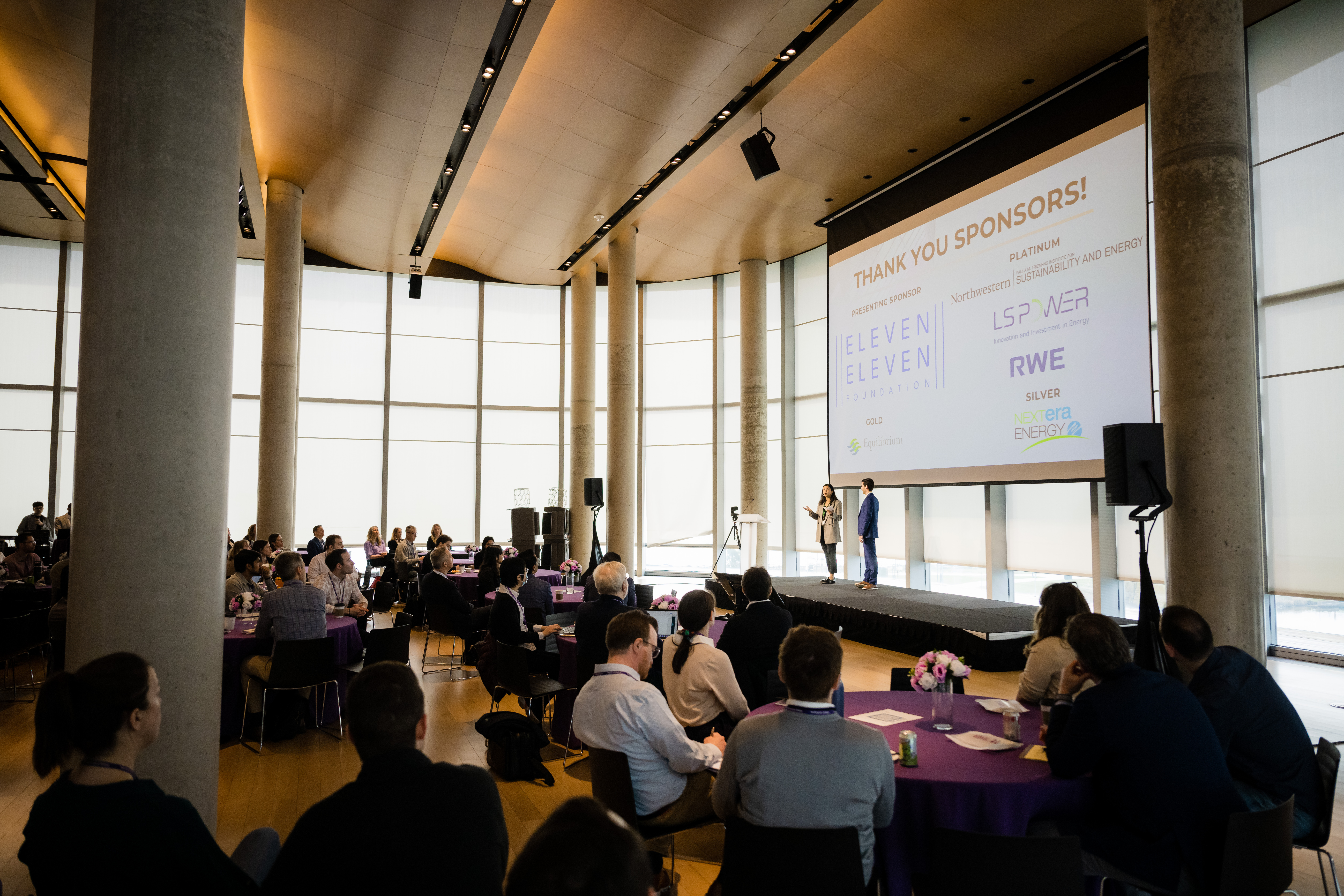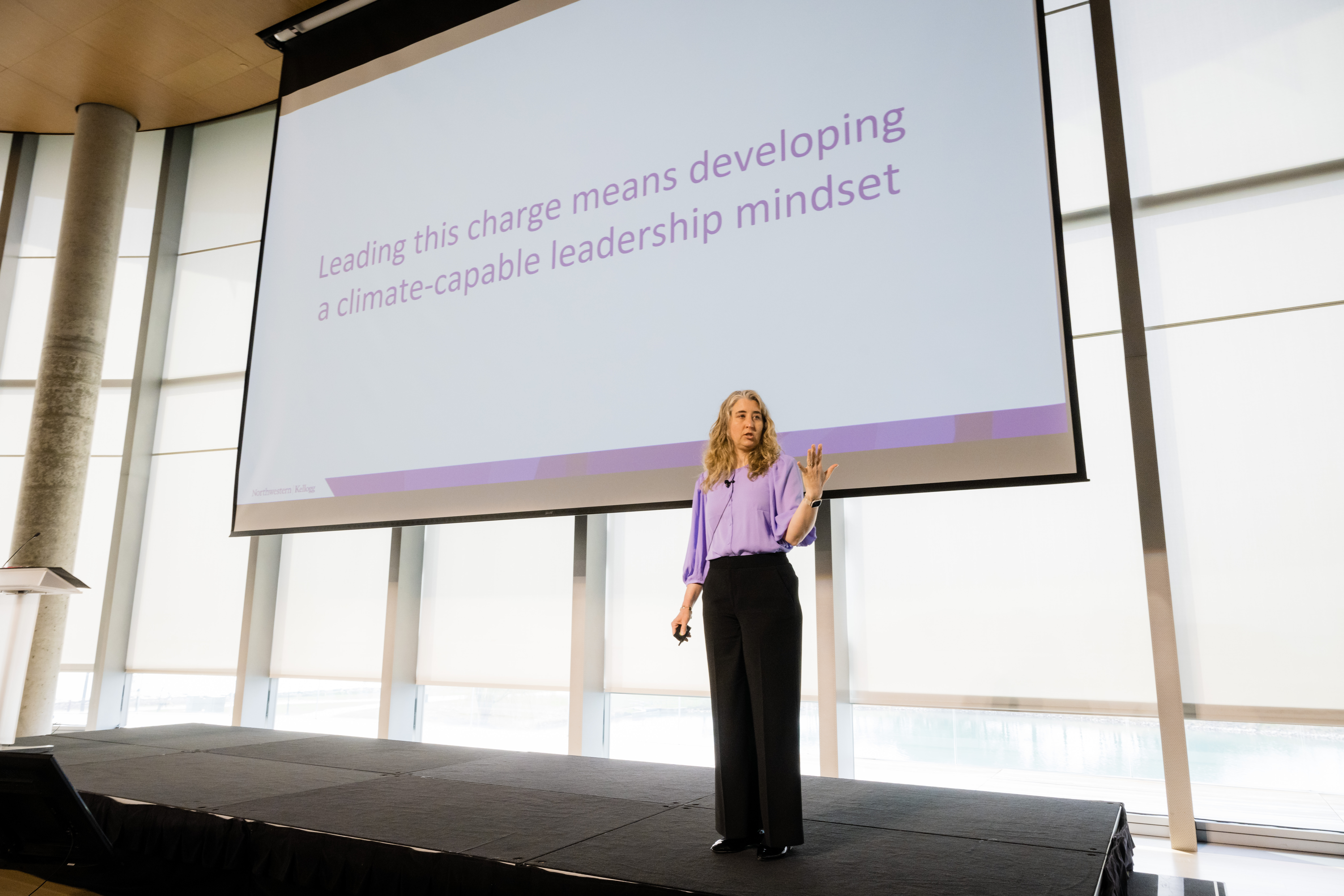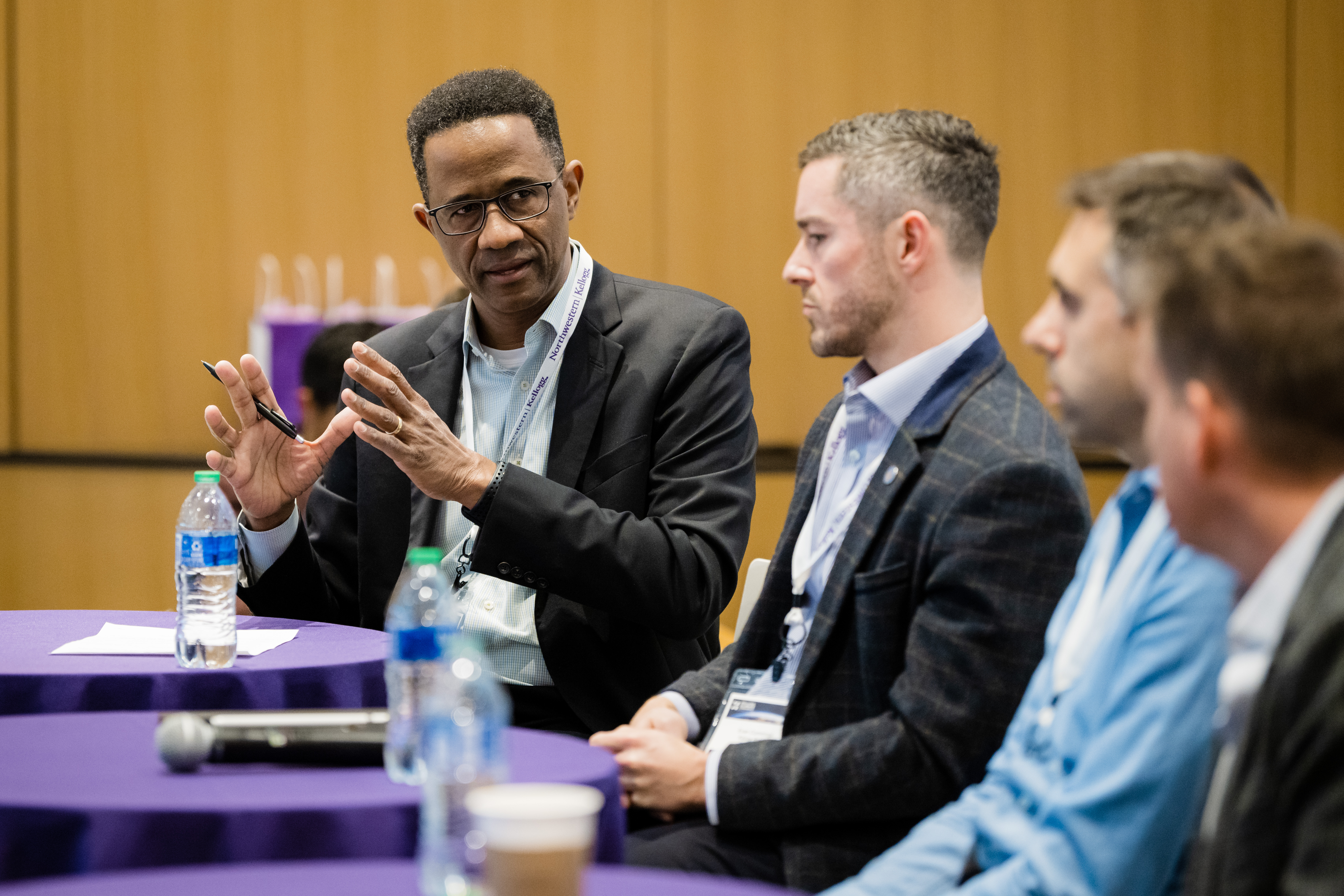Collaborating on Sustainability Regulation
At Pritzker School of Law, law and economics Prof. Alex Lee focuses on market mechanisms and government regulation as tools for addressing environmental issues

As curiosity about careers in sustainability and energy rise across Northwestern programs, current and future leaders in the field gathered at the Kellogg Global Hub gathered to learn from faculty and industry experts for a one-day event during Earth Month.
The event, with standing room only in several sessions, featured 38 speakers hailing from a variety of disciplines in talks and panel discussions. The third annual Kellogg Climate Conference was presented by the Kellogg Energy and Sustainability Club (KESC) and sponsored by the Paula M. Trienens Institute for Sustainability and Energy among other organizations.
Meghan Busse, Kellogg Associate Professor of Strategy and a faculty affiliate with the Trienens Institute, offered opening remarks. Her goal, along with the other speakers, was to educate, strategize, and ultimately motivate attendees to advance as uniquely informed, climate-conscious leaders in their respective fields.

In 2023, she noted, a billion-dollar climate disaster struck just every 18 days on average, compared with every 82 days in the 1980s. The existential feeling of urgency Busse summoned set the stage for the rest of the day’s speakers, who covered topics ranging from carbon capture and transportation to biodiversity and community resilience. Busse, who also engaged with Bea Perez, Coca-Cola’s Executive Vice President and Global Chief Communications, Sustainability and Strategic Partnerships Officer during a question-and-answer session, took a unique tack in the approach to tackling climate in business, preferring to view the landscape as an opportunity, rather than a problem. Busse shared a roadmap to climate-capable leadership with the group. “I hope that you will be the generation that sees the potential, the tremendous business opportunity that comes with this challenge. There is only proactive or reactive—and leaders need to understand that,” she said.
Throughout the day, additional guest speakers catered to the crowd of future leaders in sustainability and energy, advising students for their eventual highly impactful roles in the industry.

Attendees also heard from Trienens Institute faculty affiliate and adjunct professor Brian Tolliver during the day’s climate technology panel. Tolliver, CEO at Banyon Power, moderated a conversation between leaders from major manufacturing and green technology firms Boston Metal, Nanograf, and Kairos Power to explore obstacles and opportunities in the field.
“The conference was a special opportunity for students to connect with one another and other climate-interested leaders and alumni,” said Holly Benz, clinical associate professor and Director of the Master of Sustainability and Energy (MSES), which is administered by the Trienens Institute and offered through the McCormick School of Engineering. “It was exciting to see the Northwestern community come together to share industry knowledge and advocate for the many opportunities that exist in this field.”
MSES student Leonard Aquino spent the day engaging in the event’s topically diverse slate of sessions. “It felt like I wasn't just a fly on the wall; I had a seat at the table,” Aquino said. “[Busse’s remarks] really resonated with the message we get from MSES and the Trienens Institute as a whole—our organization is geared to facilitate that climate capable leadership mindset. Professor Busse’s first point [on leadership] was ‘perceive the situation accurately’, then mobilize to respond. This is what we as, MSES students, are really suited for.”
In a room of likeminded people, it can be easy—comfortable, even—to lose sight of the gravity and multifaceted nature of the challenges that lie in path to decarbonization—not least of which is the politicization of climate issues.
“It's easy to focus on the US and all the exciting things happening here, like the inflation reduction act and all the innovation,” said MSES student Carly Levin, “But we have to remember that CO2 in the air—it’s not just in the US. It doesn't have a nationality.”
After a day of learning and forging new connections with each other, attendees left feeling energized to take on the climate change issue, no matter their career stage or field. “The event was a great reiteration, a confirmation, to stay on the path we’re on as students,” Aquino said, “We have our work cut out to us to be leaders in the climate space and educate the rest of our community.”